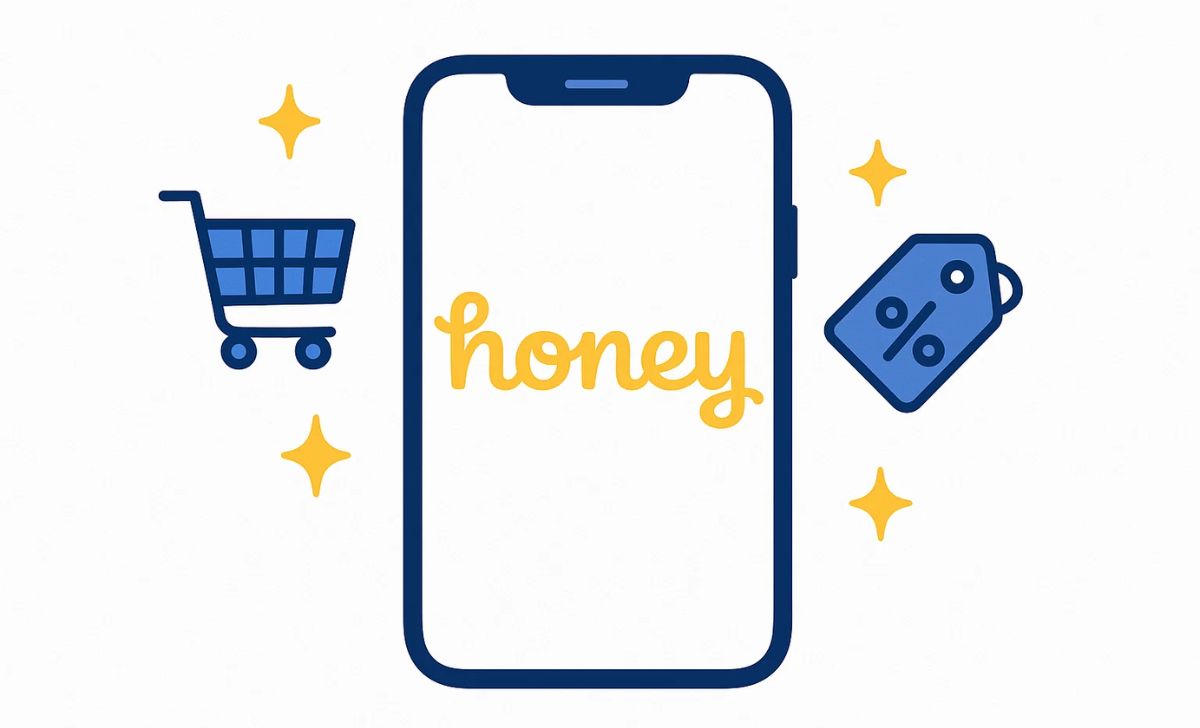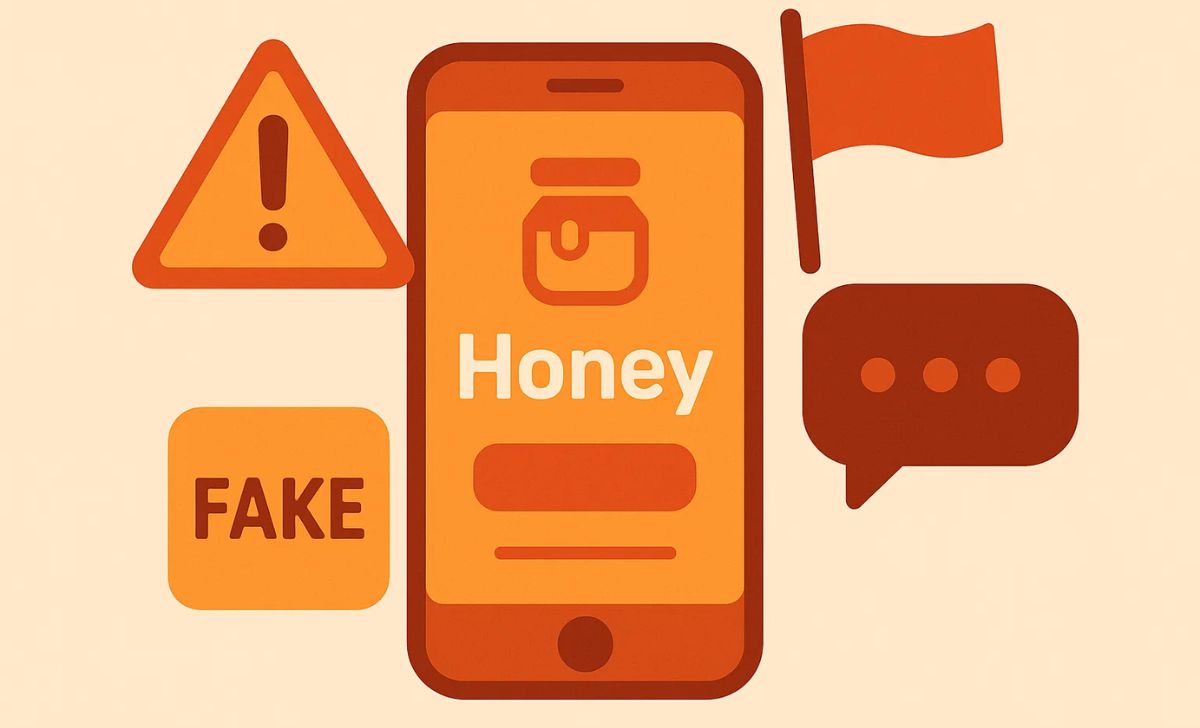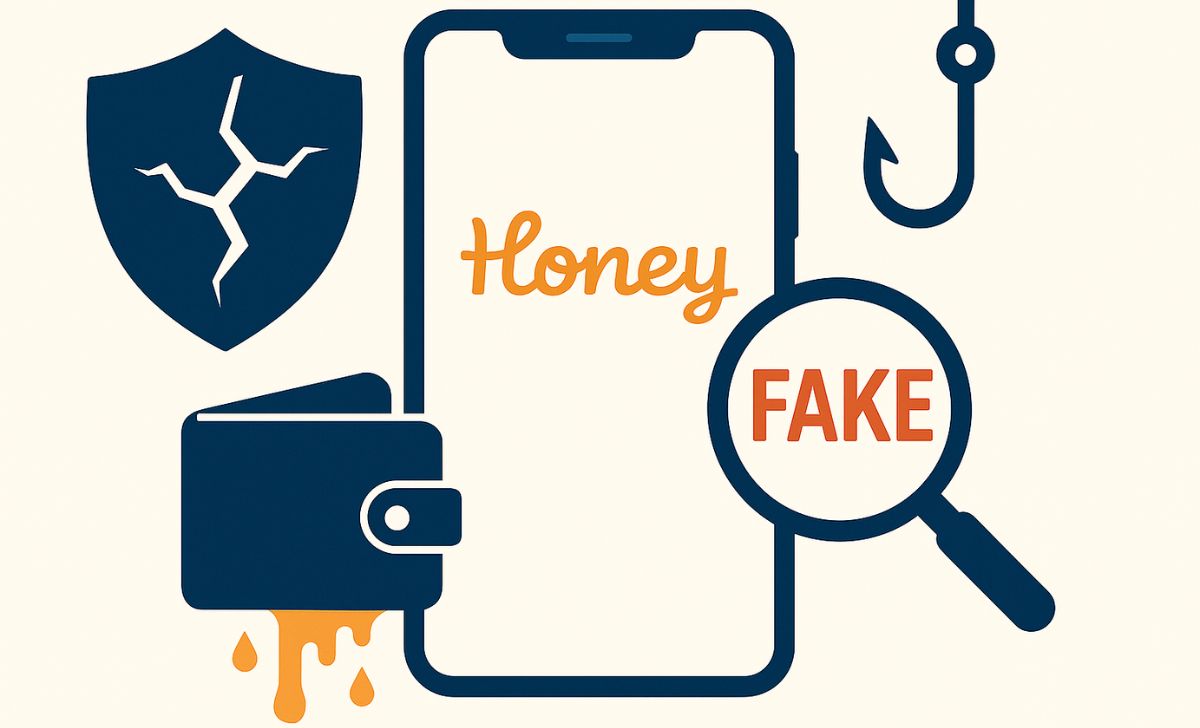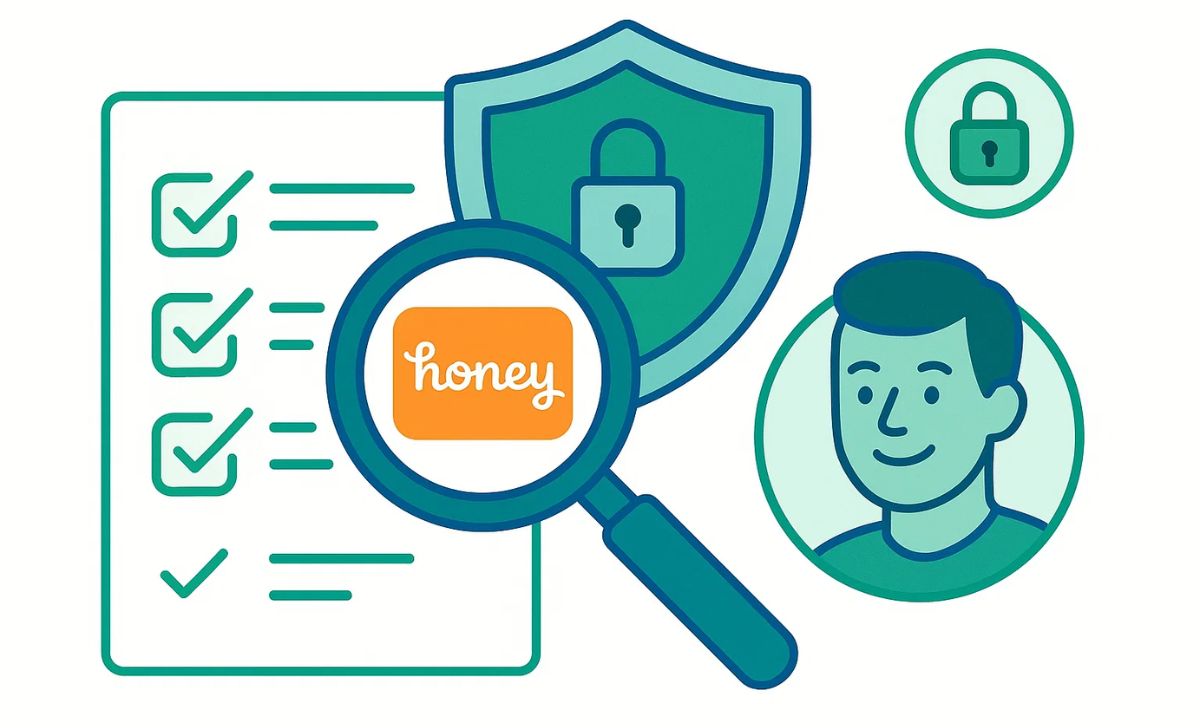Honey app scam refers to fake applications impersonating Honey, designed to steal user information or commit fraud. Key warning signs include requests for sensitive data, promises of quick cashback or earnings, unprofessional interfaces, absence from official app stores, and numerous negative reviews.
Users risk losing money, exposing personal data, and infecting their devices with malware. To stay safe, only download apps from trusted sources, never share personal information, enable two-factor authentication, and check community feedback. Always stay alert and follow the latest warnings from TOPCOIN9 to protect your assets.
What Is the Honey App?

The Honey app is a free browser extension and mobile app that automatically searches for and applies online coupon codes to help users save money when shopping at thousands of retailers (Wikipedia, 2019; CreditCards.com, 2025). Launched in 2012 and acquired by PayPal in 2020, Honey works by scanning the web for discount codes and testing them at checkout, ensuring shoppers get the best available deal with minimal effort (Wikipedia, 2019; CreditCards.com, 2025).
Honey also offers additional features such as price tracking, rewards through its Honey Gold program, and price comparisons on platforms like Amazon, making it a comprehensive smart shopping assistant (CreditCards.com, 2025; The College Investor, 2024). With over 17 million users and compatibility with major browsers and mobile devices, Honey has become one of the most popular tools for online savings worldwide (Wikipedia, 2019; The College Investor, 2024).
Users should always download Honey from official sources and review privacy practices, as the extension collects data to optimize savings and rewards (Wikipedia, 2019; CreditCards.com, 2025).
With a basic understanding of what the Honey App is and its intended purpose, let’s move on to identifying the key indicators that may signal a potential Honey App scam.
Key Indicators of a Honey App Scam

Identifying a scam related to the Honey app is essential for protecting your personal information and ensuring a safe online shopping experience. Below are the most important warning signs that users should watch for when evaluating the legitimacy of a Honey extension or related communication [Trend Micro News, 2025][arXiv, 2025].
Fake Websites or Lookalike Extensions
Scammers frequently create fake websites or browser extensions that mimic the official Honey app, using similar branding, logos, or domain names to trick users into downloading malware or sharing personal information. Only install Honey from the official website (joinhoney.com) or verified browser extension stores. Academic research shows that malicious extensions can steal data or hijack browsers if installed from untrusted sources (Wikipedia, 2019; North Carolina State University & Stony Brook University, 2020).
Requests for Sensitive Information
The legitimate Honey app never asks for sensitive information such as credit card numbers, social security numbers, or passwords via email, pop-ups, or unofficial channels. Scam versions may prompt users to enter personal or financial details, leading to identity theft or fraud. Both Wikipedia and university cybersecurity guidelines emphasize not to provide sensitive information in response to suspicious requests (Wikipedia, 2019; University of Connecticut, 2024).
Malware or Unusual Behavior After Installation
Fake or compromised extensions may display intrusive ads, slow down your device, or alter browser settings without your permission. Research from North Carolina State University and Stony Brook University warns that malicious extensions can steal cookies, collect personal data, or modify website content, posing significant privacy and security risks (North Carolina State University & Stony Brook University, 2020).
Email or SMS Phishing Scams
Fraudulent emails or SMS messages impersonating Honey or PayPal often contain malicious links or request account information or software installation. These messages may use urgent language or fake offers to lure users. University cybersecurity experts recommend carefully checking sender addresses, avoiding suspicious links, and reporting any questionable communications (University of Connecticut, 2024).
After recognizing the warning signs of a scam, it’s crucial to understand the risks associated with falling victim to Honey App scams and how they can impact users.
Risks Associated With Honey App Scams

Honey app scams and malicious browser extensions pose serious risks to users’ data privacy, finances, and online security (Wikipedia, 2019; North Carolina State University & Stony Brook University, 2020; University of Connecticut, 2024).
- Data Privacy Breaches: Fake or compromised Honey extensions can collect sensitive browsing data, track shopping behavior, and access personal information such as order history and login credentials without user consent (Wikipedia, 2019; Southern Methodist University, 2024; North Carolina State University & Stony Brook University, 2020).
- Malware and Financial Loss: Malicious extensions may install spyware or malware, leading to unauthorized access to accounts, theft of financial information, or direct financial loss through fraudulent transactions (Southern Methodist University, 2024; IAES, 2023).
- Phishing and Identity Theft: Scam versions may redirect users to phishing sites or prompt for sensitive details, increasing the risk of identity theft and fraud (University of Connecticut, 2024; North Carolina State University & Stony Brook University, 2020).
- Affiliate and Legal Risks: Honey has faced allegations of deceptive practices, such as hijacking affiliate links or withholding better discounts, which may violate consumer protection laws and lead to lawsuits or regulatory action (Wikipedia, 2019; Tom’s Guide, 2025).
- Performance and System Risks: Poorly coded or malicious extensions can degrade browser performance, slow down devices, and disrupt normal online activities (Southern Methodist University, 2024; North Carolina State University & Stony Brook University, 2020).
If you use a crypto wallet for digital assets, always ensure you download wallet apps or browser extensions from official sources and enable security features like two-factor authentication. This is especially important when buying hex or managing any cryptocurrency, as malicious apps can target your wallet and compromise your funds.
Users should only install Honey from official sources, regularly review extension permissions, and stay informed about privacy and security best practices to minimize these risks (Wikipedia, 2019; University of Connecticut, 2024; Southern Methodist University, 2024).
Given these risks, the next step is to explore effective strategies and best practices to prevent yourself from falling for Honey App scams.
How to Prevent Falling for Honey App Scams

To protect yourself from Honey app scams and other browser extension threats, follow these essential best practices, all supported by reputable sources:
- Download extensions only from official sources such as the Chrome Web Store or Firefox Add-ons to avoid malicious or counterfeit versions (Wikipedia, 2019; SMU.edu, 2024).
- Verify the authenticity of the extension by checking the developer’s name, user reviews, and ratings before installing (SMU.edu, 2024; University of Illinois, 2025).
- Review requested permissions carefully; avoid extensions that ask for access to all your data or unnecessary permissions (SMU.edu, 2024).
- Limit the number of installed extensions to reduce your exposure to potential threats (SMU.edu, 2024).
- Regularly review and remove unused or suspicious extensions to maintain browser security (SMU.edu, 2024).
- Keep your browser and extensions updated to receive the latest security patches and vulnerability fixes (SMU.edu, 2024).
- Be cautious of phishing emails or messages that impersonate Honey or prompt you to install extensions via unofficial links (Georgia Gwinnett College, 2024).
- Use reputable security software to help detect and block malicious browser extensions (SMU.edu, 2024)1.
- Enable two-factor authentication on your accounts to add an extra layer of security in case your credentials are compromised (Georgia Gwinnett College, 2024).
Staying vigilant and following these best practices will help you avoid falling victim to Honey app scams and other browser extension threats (SMU.edu, 2024; Georgia Gwinnett College, 2024).
Beyond prevention, real user feedback and experiences offer valuable insights into how these scams operate and what to watch out for in practice.
Real User Feedback and Experiences
Real user feedback on the Honey app is mixed, with both positive and negative experiences highlighted by reputable sources:
- Many users praise Honey for its convenience and ability to automatically find and apply coupon codes, often leading to genuine savings during online shopping (Wikipedia, 2019; CreditCards.com, 2025).
- Some users report frustration when certain coupon codes provided by Honey are ineffective or outdated, raising questions about the app’s reliability and the accuracy of its advertised savings (CreditCards.com, 2025; TorontoStarts, 2025).
- Concerns have been raised about Honey’s business practices, including allegations of selectively displaying discount codes based on partnerships, potentially limiting the best available deals for users (CreditCards.com, 2025).
- Privacy and data handling are also notable issues, as Honey collects user data to enhance its services, which has led to scrutiny regarding transparency and user trust (CreditCards.com, 2025).
- Despite these criticisms, Honey remains popular, with over 17 million users worldwide and a reputation for being easy to use and free to install (Wikipedia, 2019; CreditCards.com, 2025).
In summary, while Honey offers real benefits for many shoppers, users should remain aware of its limitations and potential concerns regarding privacy and deal transparency (Wikipedia, 2019; CreditCards.com, 2025).
If you find yourself affected by a Honey App scam, it’s important to know the immediate actions you should take to protect yourself and potentially recover your losses.
What to Do If You’ve Been Scammed
If you believe you’ve been scammed, take immediate action to protect your finances and personal information. The following steps are recommended by reputable authorities:
- Stop all communication with the scammer immediately and do not send any more money or information (FTC, 2025; SSA.gov, 2024).
- Contact your bank or financial institution to report the scam, request to freeze your accounts, and ask about reversing any fraudulent transactions (FTC, 2025; Aura, 2025).
- Change passwords for any accounts that may have been compromised, and enable two-factor authentication where possible (FTC, 2025; SSA.gov, 2024).
- Report the scam to the appropriate authorities, such as the Federal Trade Commission (FTC) at ReportFraud.ftc.gov in the U.S., or your local consumer protection agency (FTC, 2025; SSA.gov, 2024; CNET, 2025).
- Monitor your credit report and consider placing a fraud alert with the major credit bureaus to detect any unauthorized activity (SSA.gov, 2024; FTC, 2025).
- File a police report if you lost money or provided sensitive personal information, as this may help with future recovery efforts (NC State University, 2024; Respicio & Co., 2025).
- Warn friends and family so they can avoid related scams or follow-up attempts by scammers (SSA.gov, 2024; CNET, 2025).
- Be cautious of recovery scams do not trust anyone who promises to recover your lost funds for a fee, as this is a common tactic to scam victims again (FTC, 2025; Respicio & Co., 2025).
If you are interested in buying hex or any other cryptocurrency, always use a reputable crypto wallet and confirm you are on the official website or app before making any purchase or transfer. This reduces the risk of falling for scams that target crypto investors through fake wallets or phishing links.
Acting quickly and following these steps can help protect your finances, identity, and personal information after a scam (FTC, 2025; SSA.gov, 2024; CNET, 2025).
In summary, while the Honey app offers convenience for online shoppers, users must remain vigilant about potential scams and privacy concerns. By recognizing key risk indicators and following prevention tips, you can protect yourself from fraudulent extensions and deceptive practices. For more expert guidance on online safety and crypto security, visit TOPCOIN9 for up-to-date resources and trusted advice.

Sophia Mitchell is a passionate crypto educator with 6+ years of experience in blockchain training and community building. She has led educational initiatives for major crypto platforms and now empowers the TopCoin9 audience with valuable insights into Web3, staking, and DeFi.
Email: [email protected]











